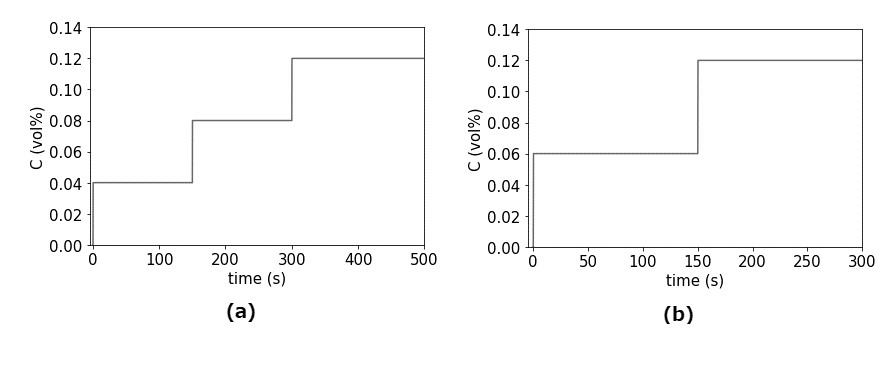(524a) Estimation and Statistical Analysis of Model Parameters Using Sequential Monte Carlo for Stepwise Injection Experiment for Preparative Chromatography
AIChE Annual Meeting
2023
2023 AIChE Annual Meeting
Separations Division
Chromatographic Separations and SMB
Wednesday, November 8, 2023 - 3:30pm to 3:55pm
For reliable model-based development, parameters in the model must be estimated. Regression is commonly used but it gives only a point estimate that cannot quantify the uncertainty of parameters which determines the reliability of the model. There are many statistical techniques for uncertainty quantification; especially Bayesian statistics have been demonstrated to be a powerful approach, where the probability distributions of the target parameters can be estimated utilizing prior information about the model parameters. In Bayesian inference, the probability distribution of the target parameters with large parameter space must be computed, which requires substantial computational effort. For this problem, the Sequential Monte Carlo (SMC) which approximates the posterior parameter distributions by random sampling has been demonstrated in[1,2]. This technique utilizes multiple sampling sequences and allows parallel computation on multiple cores simultaneously, reducing the computation time.
For accurate parameter estimation, highly informative experimental data is also needed. A well-known experimental technique for estimating adsorption isotherm parameters is stepwise injection[3]. This technique provides equilibrium information at varied concentrations, which may lead to more accurate estimation of isotherm parameters.
The purpose of this study is to explore Bayesian estimation methods that can estimate chromatographic model parameters and quantify the uncertainty of the parameters. An experimental case study, separation of phenol and p-cresol, is considered. As shown in Figure 1, stepwise injections with different numbers of steps are performed To the data obtained from these experiments, Bayesian inference using the SMC methods is applied to estimate the model parameters. The reliability of the estimated parameters is assessed from the probability density distributions. Furthermore, we checked the hypothesis that a larger number of injection steps provide more information on the adsorption equilibrium, which gives more accurate estimation of the model parameters.
Figure 1. Stepwise injection in (a) column inlet concentration for three steps and (b) two steps
References
[1] Yamamoto Y, Yajima T, Kawajiri Y. Uncertainty quantification for chromatography model parameters by Bayesian inference using sequential Monte Carlo method[J]. Chemical Engineering Research and Design, 2021, 175: 223-237.
[2] Yuan Z, Yamamoto Y, Yajima T, et al. Estimation and statistical analysis of model parameters using sequential Monte Carlo for phenol and p-cresol separation[J]. Journal of Chromatography A, 2023, 1688: 463703.
[3] G. Guiochon, A. Felinger, D.G. Shirazi, Fundamentals of preparative and nonlinear chromatography, Elsevier, 2006.
